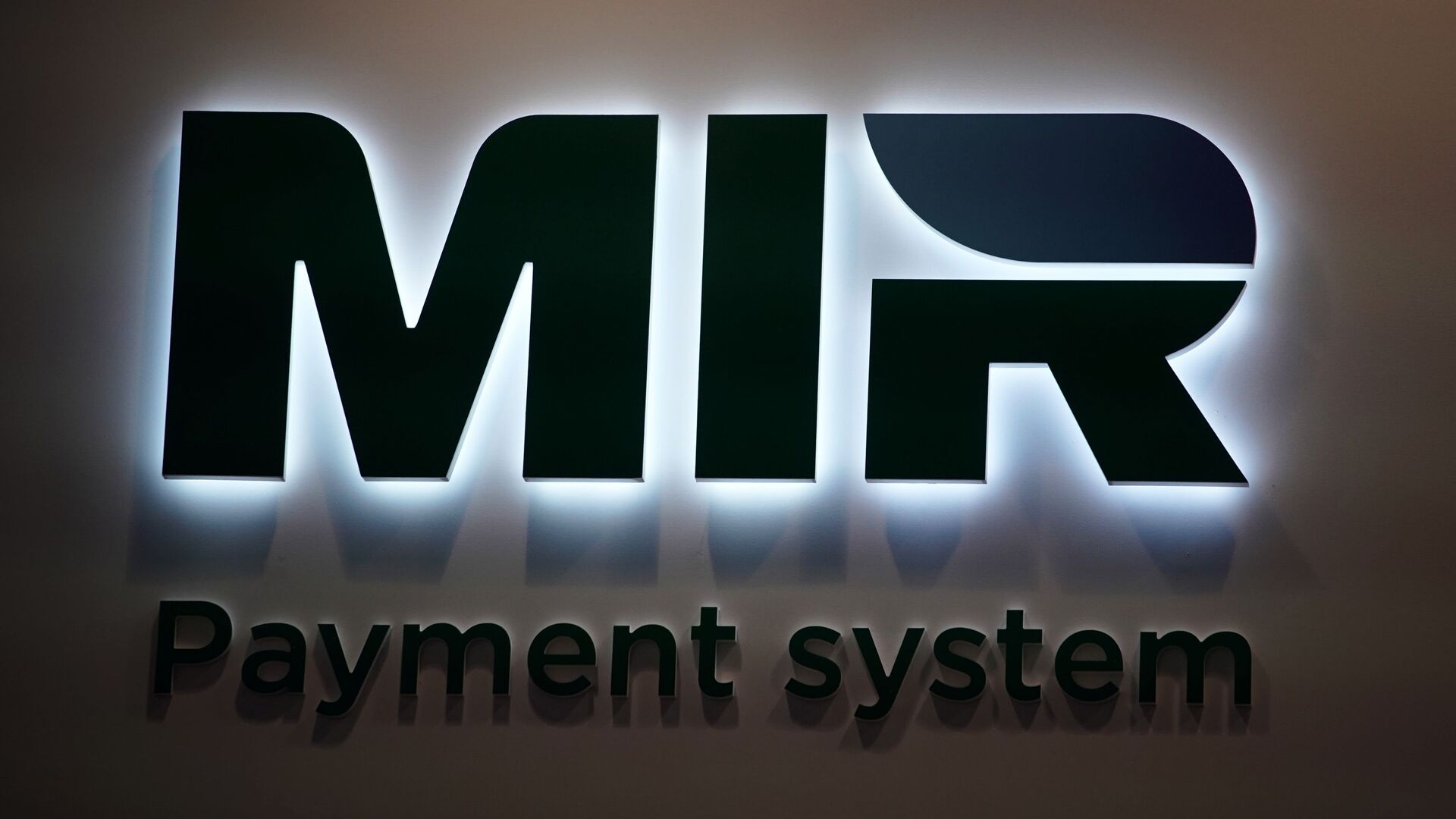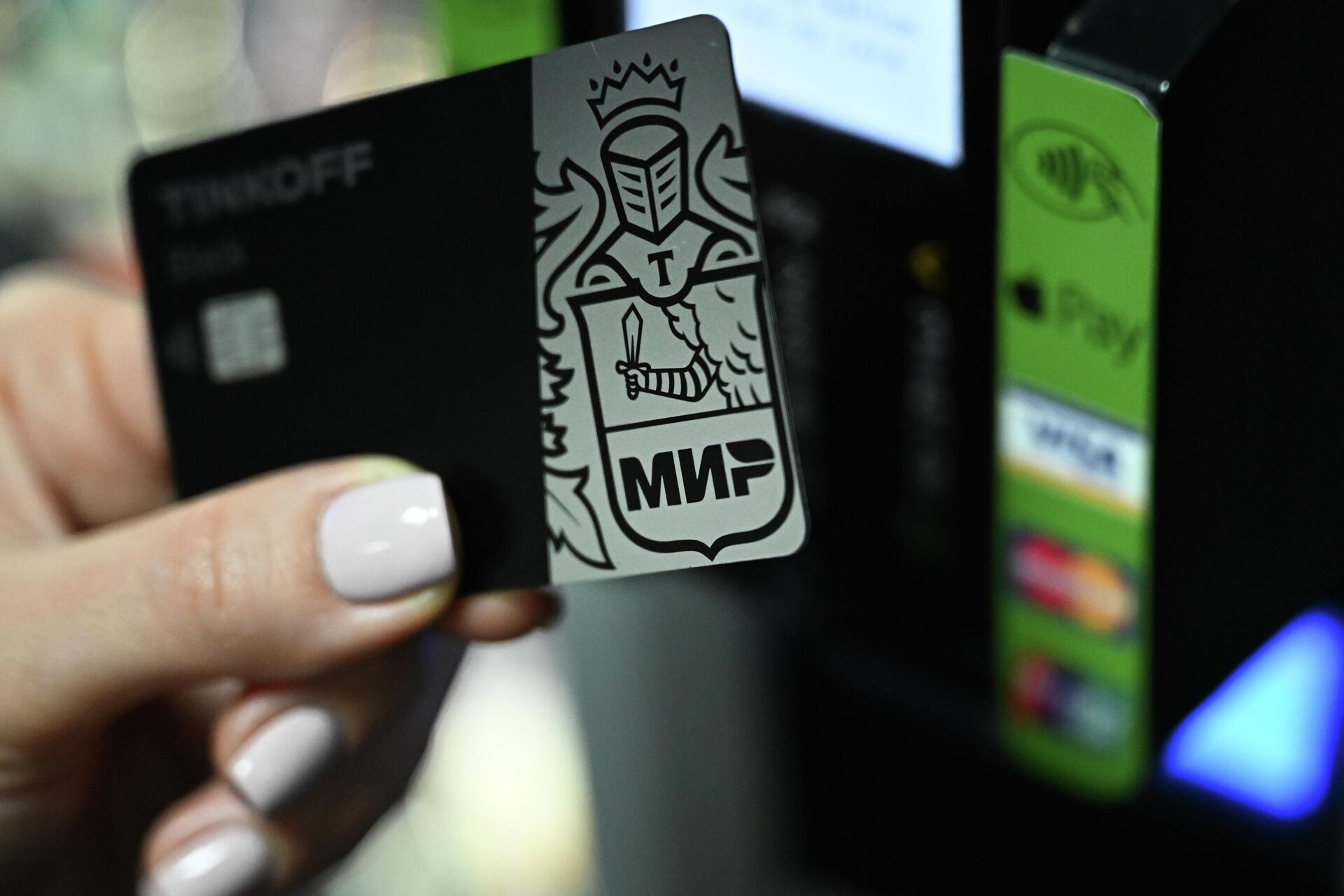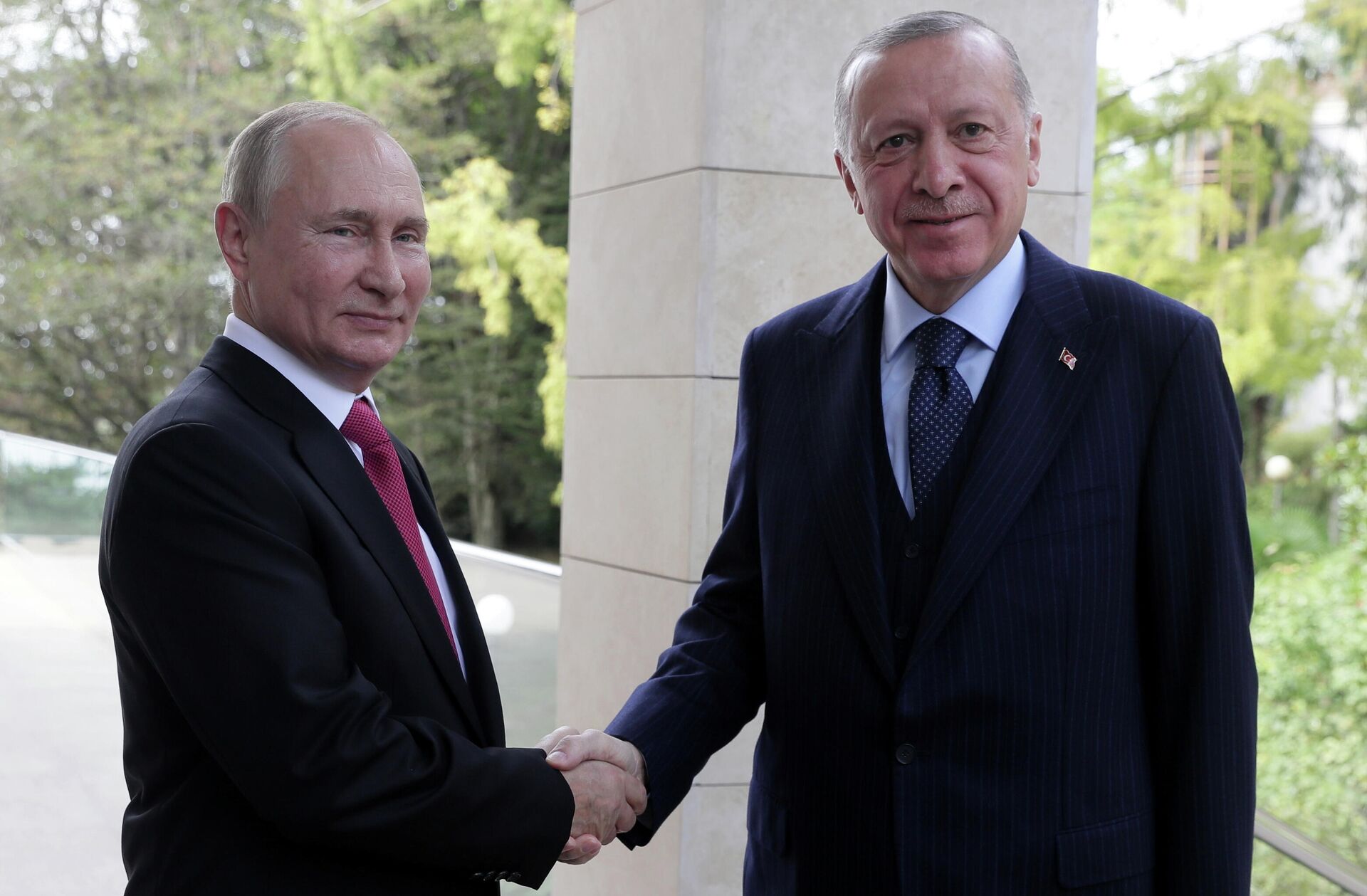https://sputnikglobe.com/20221004/abandoning-russias-mir-payment-system-to-undermine-turkish-economy-1101486268.html
Abandoning Russia's Mir Payment System to Undermine Turkish Economy
Abandoning Russia's Mir Payment System to Undermine Turkish Economy
Sputnik International
MOSCOW (Sputnik) - Turkey's withdrawal from the Russian payment system Mir will have negative consequences for the country's economy, but Ankara thinks the... 04.10.2022, Sputnik International
2022-10-04T06:17+0000
2022-10-04T06:17+0000
2022-10-04T06:17+0000
russia
russia
turkiye
mir
mir payment system
banks
https://cdn1.img.sputnikglobe.com/img/107742/56/1077425609_0:220:3072:1948_1920x0_80_0_0_d315d0cfb884ed421c5a744cdeaa4050.jpg
In recent years, Russia has been working to limit its dependency on foreign financial infrastructure by introducing its own system for bank transactions, called the System for Transfer of Financial Messages, and the Mir payment system, a national system for credit and debit cards. Turkish banks allowed the use of Mir bank cards in 2019 to make it easier for Russian tourists to pay for goods and services while visiting the country.In mid-September, the US Treasury said that sanctions would be applied against financial institutions supporting the Mir payment network outside Russia. Last week, media reported that Turkish state-owned banks Halkbank, Ziraat Bank and VakıfBank stopped using the Mir payment system, proving that the US threat of secondary sanctions is forcing countries to distance themselves from Moscow. Ziraat Bank later confirmed to Sputnik that it had ceased using the system.The expert is confident that the main reason for the withdrawal is the pressure from Washington, which threatened Ankara with sanctions if it was seen as helping Moscow to avoid restrictions. He suggested that Turkish banks were afraid that the threat alone would make banks from other countries reluctant to deal with them.Huseyin Bagci, the president of the Turkish Foreign Policy Institute and a professor of international relations at the Middle East Technical University in Ankara, noted that the Mir system was active with the state banks, but, "at the end of the day Turkey is on the western economic institutions and it needs investments from the west."Russia-Turkey RelationsRussia and Turkey have enjoyed fruitful relations in recent years, cooperating in various areas, which on occasion caused tensions with Ankara's other allies, namely Washington. The partnership between Russia and Turkey has been tested during the conflict in Ukraine, with the Turkish side maintaining a precarious balance in order to save its ties with various states. The developments surrounding the Mir system is just one part of that process.He added that Moscow is aware that Erdogan knows about the need to have a working relationship with Russia, especially with the current state of the Turkish economy. The Turkish president is thus likely to avoid angering Moscow too much, according to the expert.At the same time, Kanishkan Sathasivam, a professor in the Political Science department at Salem State University, thinks that the Mir decision could signal Turkey's growing dissatisfaction with Russia as Ankara is trying to mediate between Moscow and Kiev.Alternative Solutions?With Turkey opting out of the Mir system, the question is how the two countries will maintain their economic ties while avoiding US sanctions.When talking about a possible alternative to the Russian system, Jenkins said that "it will be very difficult for Turkey to create an effective alternative to Mir as anything that is effective is likely to incur the anger of the US and result in more threats and warnings to Turkey."He then noted that Erdogan is now mostly preoccupied with the next election in June and thus cannot afford to have "an even greater domestic economic crisis before then."Meanwhile, Bagci is more sanguine on the matter, saying that "[the] Mir system was effective but not a system without alternatives."
russia
turkiye
Sputnik International
feedback@sputniknews.com
+74956456601
MIA „Rossiya Segodnya“
2022
Sputnik International
feedback@sputniknews.com
+74956456601
MIA „Rossiya Segodnya“
News
en_EN
Sputnik International
feedback@sputniknews.com
+74956456601
MIA „Rossiya Segodnya“
Sputnik International
feedback@sputniknews.com
+74956456601
MIA „Rossiya Segodnya“
russia, turkiye, mir, mir payment system, banks
russia, turkiye, mir, mir payment system, banks
Abandoning Russia's Mir Payment System to Undermine Turkish Economy
MOSCOW (Sputnik) - Turkey's withdrawal from the Russian payment system Mir will have negative consequences for the country's economy, but Ankara thinks the price is acceptable to avoid US sanctions, experts told Sputnik.
In recent years, Russia has been working to limit its dependency on foreign financial infrastructure by introducing its own system for bank transactions, called the System for Transfer of Financial Messages, and the Mir payment system, a national system for credit and debit cards. Turkish banks allowed the use of Mir bank cards in 2019 to make it easier for Russian tourists to pay for goods and services while visiting the country.
In mid-September, the US Treasury said that sanctions would be applied against financial institutions supporting the Mir payment network outside Russia. Last week, media reported that Turkish state-owned banks
Halkbank, Ziraat Bank and VakıfBank stopped using the Mir payment system, proving that the US threat of secondary sanctions is forcing countries to distance themselves from Moscow. Ziraat Bank later confirmed to Sputnik that it had ceased using the system.
"The impact of the withdrawal from Mir will probably be less than if it had happened during the summer when a lot of Russian tourists were visiting Turkey. But it is still going to hurt the Turkish economy. There are still a lot of Russians in Turkey and coming to Turkey and the withdrawal from Mir is going to make it more difficult for many of them to make payments," Gareth Jenkins, a non-resident senior research fellow with the Joint Center Silk Road Studies Program and Turkey Center at the Institute for Security and Development Policy in Stockholm, said.
The expert is confident that the main reason for the withdrawal is the pressure from Washington, which threatened Ankara with sanctions if it was seen as helping Moscow to avoid restrictions. He suggested that Turkish banks were afraid that the threat alone would make banks from other countries reluctant to deal with them.
"I think [Turkish President Recep Tayyip] Erdogan’s calculation — and, of course, it was Erdogan who made this decision — was that the damage to the Turkish economy from withdrawing from Mir was going to be less than the damage that the US could do to the Turkish economy if Turkey stayed in Mir," Jenkins said.
Huseyin Bagci, the president of the Turkish Foreign Policy Institute and a professor of international relations at the Middle East Technical University in Ankara, noted that the Mir system was active with the state banks, but, "at the end of the day Turkey is on the western economic institutions and it needs investments from the west."
"Turkey's choice is the West and Western economic system," Bagci said, adding that the withdrawal from Mir will still hurt the Turkish economy, but the damage will be "negligible."
Russia and Turkey have enjoyed fruitful relations in recent years, cooperating in various areas, which on occasion caused tensions with Ankara's other allies, namely Washington. The
partnership between Russia and Turkey has been tested during the conflict in Ukraine, with the Turkish side maintaining a precarious balance in order to save its ties with various states. The developments surrounding the Mir system is just one part of that process.
"Turkish-Russian relations have always been complex, with cooperation in some areas running parallel to disagreements, even confrontations, in others. I doubt very much whether the Russian government is very happy about Turkey’s withdrawal from Mir but I think that they will probably decide to live with it," Jenkins said.
He added that Moscow is aware that Erdogan knows about the need to have a working relationship with Russia, especially with the current state of the Turkish economy. The Turkish president is thus likely to avoid angering Moscow too much, according to the expert.
At the same time, Kanishkan Sathasivam, a professor in the Political Science department at Salem State University, thinks that the Mir decision could signal Turkey's growing dissatisfaction with Russia as Ankara is trying to mediate between Moscow and Kiev.
"With the Russian side opting for further and further escalation even as the Turkish side is more and more strongly pushing for a negotiated solution that includes a restoration of Ukraine’s pre-war borders, I think finally the Turks have simply had enough of Russian intransigence," Sathasivam opined.
With
Turkey opting out of the Mir system, the question is how the two countries will maintain their economic ties while avoiding US sanctions.
When talking about a possible alternative to the Russian system, Jenkins said that "it will be very difficult for Turkey to create an effective alternative to Mir as anything that is effective is likely to incur the anger of the US and result in more threats and warnings to Turkey."
He then noted that Erdogan is now mostly preoccupied with the next election in June and thus cannot afford to have "an even greater domestic economic crisis before then."
Meanwhile, Bagci is more sanguine on the matter, saying that "[the] Mir system was effective but not a system without alternatives."




